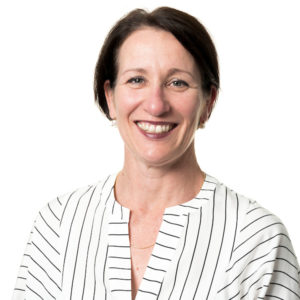
News of the High Court’s independent investigation into former Justice Dyson Heydon sparked what’s been dubbed the legal profession’s own ‘me too’ moment and was quickly followed by the predictable calls for cultural change.
Change within the legal profession and cultural change alone doesn’t go nearly far enough, says Ruah Community Services CEO and WACOSS President, Debra Zanella.
We are very predictable, aren’t we?
The ‘shock, horror’ of revelations that a former High Court Judge used his power, privilege and position to intimidate and harass women (and yes, his vehement denials are noted) gives way quickly to the collective sigh of relief when there’s a call for cultural change in the hallowed halls of the law.
We can go back to our worlds, comfortable they’re cleaning up their mess and ours can’t possibly be that bad.
Hold on. Don’t let any of us off the hook that easily.
Cultural change in the legal profession and many other sectors where power, entitlement and privilege are treasured as traditions is a helpful first step.
But it’s just the beginning.
What we know at Ruah, and throughout the community services sector, through our work on the front line of sexual harassment, abuse and violence against women, is that unless we address the gender inequality that is deeply embedded into the foundations of the systems and structures that allow people like Dyson Heydon to behave the way he did, we will never be off the hook.
The same behaviour will be repeated again, and again, and again. Throughout our working and personal worlds. For more generations to come.
Put us all back on the hook. We don’t get out of it this easily. And there’s too much at stake.
Our Watch – a national leader in the primary prevention of violence against women and their children – explains gender inequality as “a social condition characterised by unequal value afforded to men and women and an unequal distribution of power, resources and opportunity between them. It often results from, or has historical roots in, laws or policies formally constraining the rights and opportunities of women. It is maintained and perpetuated today through structures that continue to organise and reinforce an unequal distribution of economic, social and political power and resources between women and men”.
The unequal distribution of power, and the abuse of that power is far too common.
What are we doing to demolish those structures that reinforce inequality-for instance: systems that prevent women from participating because they have to make a choice between career and family, and create that cloak of permission and opportunity for abusive behaviour?
People like Dyson Heydon – someone at the highest level of his profession in a role filled with authority, recognition, prestige and power – make a choice about whether to exploit those privileges of position and harass and abuse those who have less power.
So it’s true we need cultural change. We do need to call out abusive behaviour in all its forms and in all the places in which it occurs. We do need to believe people who experience abuse – men, women and children. And we do need to speak bluntly and directly about abuse.
In her piece in an eastern states’ newspaper, Rachel Doyle SC, from the Victorian Bar makes that point very well in questioning the lack of the direct messaging for perpetrators of sexual harassment. She says:
“Some of our members still think it is OK to touch more junior practitioners without their consent. Some of our members still think it is OK to use their power to humiliate more junior practitioners and subject them to uninvited sexual overtures. It’s not OK. It contravenes our policies. It’s against the law. Stop doing it…To the members of the legal profession who persist in perpetrating sexual harassment, stop it. You ought to be ashamed.”
But again, a call for cultural change is not enough. It is too easy to use that call to assuage responsibility for the very structures of which we are all a part. We all have a responsibility to examine deeply the very structures and systems in which we participate, and from which many of us benefit at the expense of others who do not. I think about this a lot in relation to the structures and systems that have favoured my life and career compared to many of Aboriginal women leaders I have the privilege of working alongside.
These structures need to go. We need to tear into pieces that deeply embedded and often institutionalised cloak of permission and opportunity from those with power, who are driven by a sense of entitlement to make choices that scar and destroy lives. We need to dismantle the organisational structures and systems that simply perpetuate and allow the Dyson Heydons of this world to go untouched.
The call is for all of us to get back on the hook and do our part in changing the root causes that lie at the heart of sexual harassment, discrimination and abuse – and the laws, policies and behaviours that quietly say it is okay after all.
This article appeared in The West Australian Newspaper 2 July, pg 53
